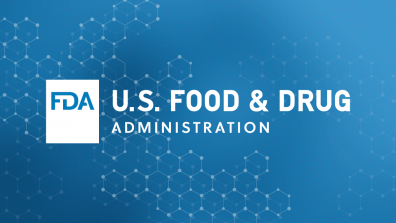¶ FDA Mandate Initiative
Reducing disease and increasing longevity is not the congressional mandate of the FDA. Its mandate is to ensure the "safety and efficacy of drugs and medical devices."
The FDA has been very successful at fulfilling its mandate. However, it could completely outlaw the production of any new life-saving treatments whatsoever, and it would guarantee that it perfectly fulfilled its mandate. Yet, millions of people would die unnecessarily as a result of the perfect fulfillment of its mandate.

¶ Contents
- 1 Current FDA Mandate
- 2 Cost-Benefit Analysis
- 3 Improved FDA Mandate
- 4 Consistency of Policy and Purpose
¶ Current FDA Mandate
The Food and Drug Administration is responsible for protecting the public health by ensuring the safety, efficacy, and security of human and veterinary drugs, biological products, and medical devices; and by ensuring the safety of our nation's food supply, cosmetics, and products that emit radiation.
¶ Cost-Benefit Analysis
If you reduce the speed limit to 0 miles per hour, it will be much safer for everyone, and you could reduce traffic fatalities by 40k per year. However, there is an economic and societal cost to only moving 0 mph that would exceed the safety benefit.
Likewise, if you dramatically slow the development of life-saving treatments, you will avoid the risk of someone being allowed to try a drug that doesn't work. However, many people with uncured diseases will die while waiting for treatment.
Safety and efficacy are not inherent goods in themselves. Saving lives and alleviating human suffering are inherent goods in themselves. Hence, these inherent goods should be the focal point and primary objective of the FDA.
¶ Improved FDA Mandate
The Food and Drug Administration is responsible for minimizing the number of deaths and years of suffering experienced by determining the benefits and harms of human and veterinary drugs, biological products, and medical devices; and by determining the benefits and harms of foods, additives, nutritional supplements, cosmetics, and products that emit radiation.
¶ Consistency of Policy and Purpose
It has already been recognized by congress and the FDA that this should be the true goal. This is evidenced by the passage of the Right to Try Act. The act allows those with life-threatening diseases to try treatments with uncertain efficacy after all approved treatments have failed.
However, allowing patients access to treatments of unknown efficacy time is contrary to the current mandate. Fortunately, congress still passed the law in order to attain the greater good of saving lives. Hence, it is only logical to correct the FDA mandate to extend this goal of the greater good to all FDA policy decisions.